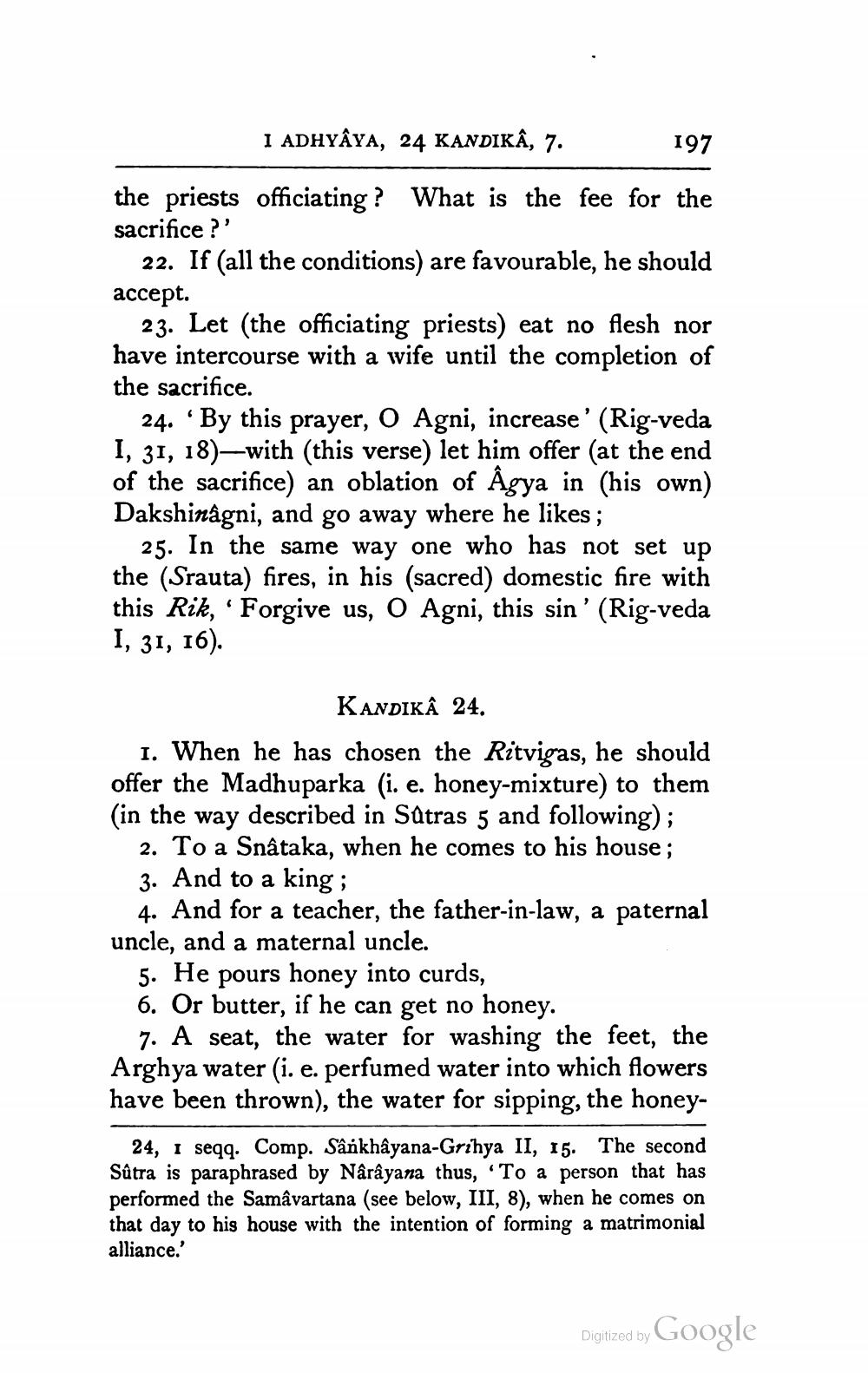________________
1 ADHYÂYA, 24 KANDIKÂ, 7. 197 the priests officiating? What is the fee for the sacrifice ?'
22. If (all the conditions) are favourable, he should accept.
23. Let (the officiating priests) eat no flesh nor have intercourse with a wife until the completion of the sacrifice.
24. 'By this prayer, O Agni, increase' (Rig-veda I, 31, 18)—with (this verse) let him offer (at the end of the sacrifice) an oblation of Agya in (his own) Dakshinagni, and go away where he likes ;
25. In the same way one who has not set up the (Srauta) fires, in his (sacred) domestic fire with this Rik, 'Forgive us, O Agni, this sin' (Rig-veda I, 31, 16).
KANDIKÂ 24. 1. When he has chosen the Ritvigas, he should offer the Madhuparka (i. e. honey-mixture) to them (in the way described in Satras 5 and following);
2. To a Snâtaka, when he comes to his house; 3. And to a king;
4. And for a teacher, the father-in-law, a paternal uncle, and a maternal uncle.
5. He pours honey into curds, 6. Or butter, if he can get no honey.
7. A seat, the water for washing the feet, the Arghya water (i. e. perfumed water into which flowers have been thrown), the water for sipping, the honey
24, i seqq. Comp. Sânkhâyana-Grihya II, 15. The second Sûtra is paraphrased by Nârâyana thus, ‘To a person that has performed the Samâvartana (see below, III, 8), when he comes on that day to his house with the intention of forming a matrimonial alliance.'
Digitized by Google




